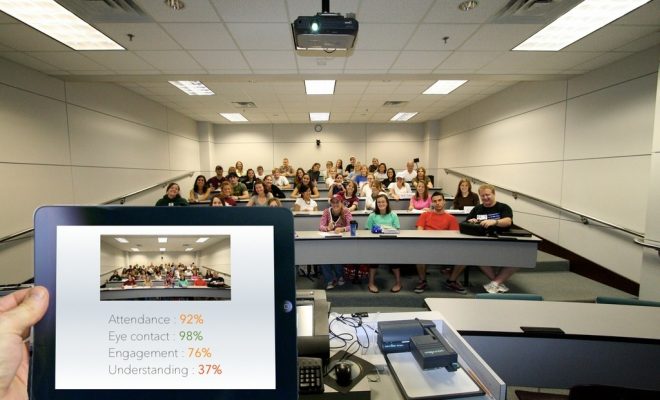Are wealthy donors influencing the public school agenda?

This article was written by Rebecca Jacobsen, Jeffrey Henig, and Sarah Reckhow
School boards have often been portrayed as old-fashioned and dysfunctional, so much so that some school reform leaders have advocated for eliminating school boards altogether.
It is no surprise then that school board elections have mostly been known as being sleepy affairs. Most candidates in the past have been known to spend less than US$1,000 toward campaign expenses such as campaign literature and name recognition efforts. In 2010, for example, less than 3 percent of candidates reported spending more than $25,000.
However, this reality, as we have known it, is changing. Of late, out-of-state donors are writing very large checks to support candidates and political action committees (PACs) in local school board elections. Yes, there are PACs now involved in local school board elections.
Recent school board elections in places such as Denver, Indianapolis, Los Angeles, Minneapolis and New Orleans have seen candidates routinely raising at least 50 times as much money as the 2010 national average.
Why is this happening? And how might the involvement of these large wealthy donors change our local schools?
We are scholars of politics and education. Our research shows that such large donations have the potential to change who is elected to govern and, as a result, how our schools are reformed.
Why do school boards matter?
First, let’s look at the unique arrangement of power in the U.S. education system to understanding why this new infusion of funding is significant.
The U.S. education system is highly decentralized, with control of schools spread across over 13,000 independent, local school districts. Most boards, comprising five to eight members, enjoy considerable power over many areas, including whom to hire, what to teach, when to hold school and how to allocate budgets.

State of Maryland school board meeting. Maryland GovPics, CC BY
It is true that of late, the decision-making power of school boards has been curtailed by recent national (e.g., No Child Left Behind and Every Student Succeeds Act) and state (e.g., state takeover laws) policies. For example, when NCLB came up with its own guidelines for “highly qualified teachers,” school boards had to ensure that their definition for teachers’ qualifications aligned with federal standards and not only with local priorities and standards. Ignoring these federal guidelines was accompanied by the potential loss of federal funding.
Even with these recent limitations, however, school boards nonetheless remain important. They can modify, regulate, innovate and resist state and federal policy demands.
This ability to resist or modify policy guidelines was evident recently after the Obama administration released its “Letter on Transgender Students,” which advised school districts to treat transgender students based on their expressed gender identity rather than their sex assignment at birth.
School boards across the country were called upon by local citizens to resist this policy. In some cases, local school boards voted to not comply with the Obama administrations guidelines.
Thus despite their relatively low profile, school boards have the power to dramatically shape local educational experiences by modifying, or even at times ignoring, state and federal rules and regulations.
How widespread is outside money?
This ability to alter or resist state and national policy may be the motivating force behind the recent investment by wealthy, national donors.
To examine this rise in donations to local school board candidates, we investigated over 18,000 campaign contributions in local education elections between 2008 and 2013 in five cities (Bridgeport, Denver, Indianapolis, Los Angeles and New Orleans). We selected these five sites for examination because they were geographically and politically diverse and yet all five had school board elections where national donors became involved.
We found that donations from outside donors were widespread and significant. In the 2012-2013 elections, for example, we found that large outside donors gave over $2.8 million to school board candidates and committees, comprising 44 percent of all funds contributed by individuals. This represents a significant increase from 2009-2010, when large outside donors comprised only 4 percent of donations in the cities we examined.
The figure below shows the growth of out-of-state donations by individuals in each city.

In-state vs. out-of-state individual donations by city and by year. Data Source: Authors’ Data, CC BY
Who’s making the contributions?
By examining publicly available campaign finance disclosure reports, which are filed by all candidates, including school board candidates, and list each donor and the amount donated, we were able to track a list of wealthy donors who contributed at least $1,000 in one election cycle (see here for an example of how to access these data). In total, we found 96 large national donors involved in education philanthropy and education reform. These donors included, for example:
Reed Hastings, CEO of Netflix, who donated in Los Angeles in 2011 ($150,000) and 2013 ($100,000) and in New Orleans in 2013 ($2,500). The high-tech billionaire is active in supporting the development of new charter schools and founded educational organizations such as NewSchools.org and Aspire Public Schools.

Reed Hastings. re:publica, CC BY
Alan and Jennifer Fournier, who donated in Indianapolis in 2012 ($4,000), Los Angeles in 2013 ($2,000) and New Orleans in 2012 ($2,200). Alan Fournier is founder of Pennant Capital Management, which manages $6 billion in assets. Alan Fournier cofounded (with David Tepper, a hedge funds manager), Better Education for Kids, which advocates for tenure reform and greater teacher accountability.
Katherine Bradley, the president of CityBridge Foundation, which “finds, incubates and invests in the most promising practices in public education,” who donated in Denver in 2009 ($500) and 2013 ($6,500), New Orleans in 2012 ($2,500) and Los Angeles in 2013 ($2,000).
Laurene Powell Jobs, wife to the late Steve Jobs and founder of Emerson Collective, who donated to Los Angeles in 2009 ($1,000) and 2013 ($103,000), New Orleans in 2012 ($2,500) and Denver in 2009 ($2,525). She is active in school reform and is a board member for several education nonprofits including Teach for America, the New Schools Venture Fund, and Stand for Children.
Could the top 0.01 percent change local schools?
Outside money may not be a bad thing if the values and interests of donors align with residents in the communities. It might even be a good thing if outside donations raise the visibility of school board elections, so often plagued by disengagement.
Perhaps bigger campaign war chests and close election battles will fuel engagement in school board elections, increase voter turnout and increase awareness of education issues. But these presumed benefits rest on the assumption that these elite donors share the same values and interests of the local community.
Research suggests that this assumption is unlikely to hold because policy preferences among the very wealthy differ from most Americans. Research by prominent academics working on economic inequality, Benjamin I. Page, Larry M. Bartels and Jason Seawright, captures these differences. These scholars found that,
“[o]n many important issues, the preferences of the wealthy appear to differ markedly from those of the general public.”
These different preferences are borne out in our data as well. We found that national donors favored “reform” candidates, or, put simply, those who supported policies such as school choice, performance-based accountability and adoption of the Common Core of State Standards.
School choice offers parents the ability to choose a their child’s public school rather than being assigned one based on one’s home location. Performance-based accountability plans generally require that school or teacher performance evaluations be based upon student standardized test scores. Schools or teachers may face sanctions if these targets are not met. The Common Core of State Standards (CCSS), adopted voluntarily by states, outline what students should know and be able to do at the end of each grade.
We found that candidates who received union support received almost no support from large, national donors. This targeted funding ultimately shaped, at least in some cases, the focus of the election debate.
Here is why it matters
The concentration of funds on candidates with particular policy agendas can squeeze out other policy issues. For example, a candidate we interviewed who was very interested in restoring adult education programs for immigrant parents noted,
“It [money] changes the discourse…their [the reform candidates] message is the only message. Not just the dominant message anymore. It’s the only message that people are hearing.”
While this candidates wanted to focus on the importance of providing adult education programs for immigrant parents, he felt his message about the importance of this issue was unable to compete with the messages being put forth by the reform candidates because he lacked funding to promote his policy agenda.

What changes in public schools when wealthy donors get involved? woodleywonderworks, CC BY
In our interviews, candidates who received outside funds noted that additional funding enabled them to reach voters more often and through multiple strategies. One candidate supported by large, national donors explained that in addition to mailings and yard signs, more traditional forms of reaching voters, the additional funds enabled him to hire a professional videographer who filmed and edited three vignettes that were shown on TV: one at his home with his family, one in a local library in the community and one in a classroom.
Even traditional forms of contact were given an upgrade. For example, a candidate noted that her materials were “more polished” with “nice photos,” something other candidates were unable to do because of a lack of funds.
Some candidates we interviewed felt voters benefited from this, whereas others worried that voters were “inundated” with information from just a few candidates. One candidate described how a friend received seven mailers from a candidate supported by outside funding in a single day. Candidates without this level of funding repeatedly noted that their message couldn’t compete.
Increasing polarization
As with state and national elections, we heard from several candidates that outside donations were also leading to increased conflict during campaigns and less willingness to compromise once elected.
One candidate described the polarization of the local board as being “very much like our federal government” where board members were either “a charter school candidate or a union backed candidate” and when on the board, “nobody can cross the line.”
As a result, some expressed concern that voters were becoming more cynical and less confident in their local public schools.
One candidate shared that she heard from voters on several occasions to “please stop calling” because “I’ve already gotten 10 calls this week about the election.” This candidate was concerned that disengagement in the form of low voter turnout was a direct result of citizens being turned off by the election.
What does this mean for public schools?
We certainly support greater attention to improving our public education system. But reform takes time. It takes compromise. It takes understanding of the day-to-day realities of local schools.
The old fashioned school boards, with all of their faults, were often slow and pragmatic, a force that could shield school leaders, teachers and students from broader political forces that whip the local agenda back and forth.
It remains to be seen whether school boards are strengthened by the nationalization of local school board elections or whether the injection of national funds will hinder the ability of schools to improve.
![]()
Rebecca Jacobsen, Associate Professor of Teacher Education, Michigan State University; Jeffrey Henig, Professor of Political Science and Education, Teachers College, Columbia University, and Sarah Reckhow, Assistant Professor of Political Science , Michigan State University
This article was originally published on The Conversation. Read the original article.






